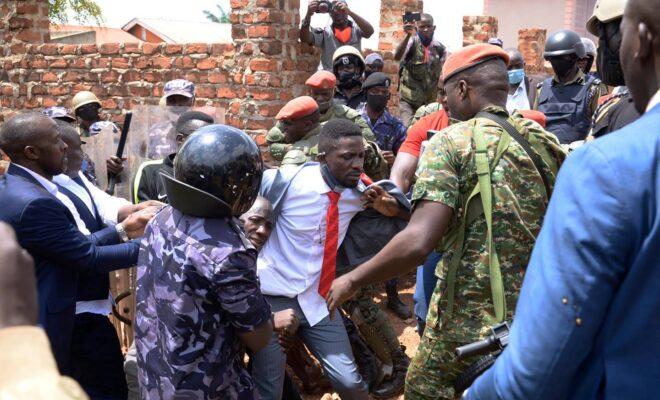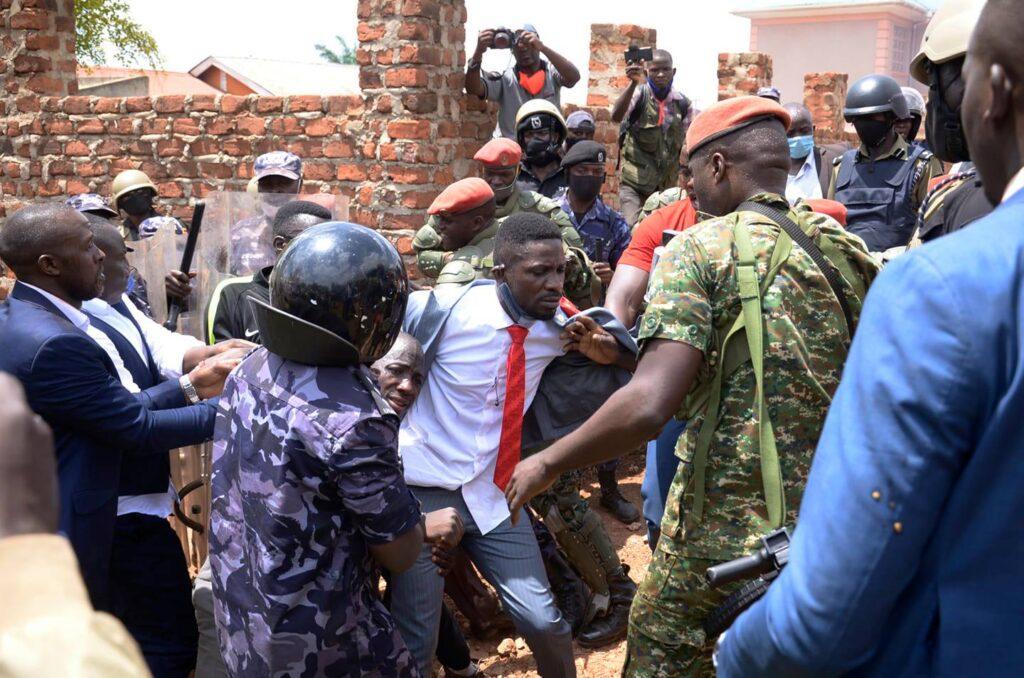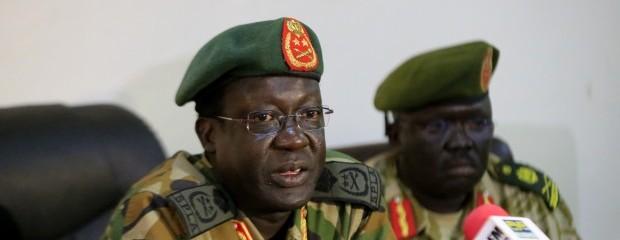Uganda: If we do not take risks, we risk everything

I was arrested and beaten last week for daring to contest the presidential election. This is not a fair fight, but I have no option but to be strong.

Bobi Wine being arrested in Kampala, Uganda, after registering his candidacy for the upcoming presidential elections. Credit: HEBobiWine.
On Tuesday 3 November I was arrested, beaten and tortured by police. Shortly after registering my candidacy to challenge President Yoweri Museveni in next year’s election in Uganda, I was pulled from my car and thrown into a van. The entire event was captured on television cameras.
This recent experience has confirmed what we already knew: we Ugandans are living under an absolute military dictatorship and the forthcoming presidential elections will not be free and fair. Ever since airing my opposition to President Museveni’s government, I and my fellow members of the National Unity Platform (NUP) have faced constant harassment, restrictions on our movement, and intimidation at the hands of the security forces.
Museveni will be running for his sixth term as president in 2021 after amending the constitution twice to allow him to carry on ruling. He has been in power since 1986 and is determined to stay there at any cost, including the lives of his citizens.
He ran out of ideas to transform Uganda a long time ago. Today he is only interested in power for power’s sake, not for the sake of Uganda’s 43 million people, 41.5% of whom live in poverty at the international benchmark of $1.90 per day. Half of our population is under the age of 15. Only half have completed primary education. It’s a shocking situation. Yet our 76-year-old president, who has been in power for 34 years, wants to stay there. To put the duration of his rule in context, Idi Amin led Uganda for just eight years.
While he may represent the entrenched interests of the Facelift generation, President Museveni knows how much of a threat the Facebook generation poses. This explains why he blocked internet coverage in earlier elections, among other rigging and intimidation tools. Already, in the run-up to the election scheduled for 14 January 2021, it is impossible for us to campaign outside Kampala as we are blocked by security forces from travelling. Our experience of intimidation ranges from a frightening attempt on my life to the absurd charge I faced for “annoying the president”.
My latest encounter occurred shortly after I submitted my papers to be the presidential candidate of the NUP. Police smashed my car window, arrested me, and drove me around for five hours. I was beaten up. I had pepper spray sprayed into my eyes and my hands were burnt. I was dumped at my house. No reason was given for my arrest.
All this for contesting an election.
The world needs to wake up to what is happening in Uganda. The electoral commission has not spoken out about this event. The chair of the commission feigns ignorance when he was 100 meters away from where the arrest took place. The state media has, of course, been silent about the incident, although the president’s son came out to boast about it on Twitter.
Running against Museveni is not a fair fight. He knows he would lose anything approaching a fair fight. Instead we run against the full force and resources of the institutions of state. He routinely uses the army and police to defend his interests, to ensure that he wins. His campaigns are lubricated by patronage.
Yet President Museveni receives more than $2 billion in international aid every year. Why do the donors fund our oppressor? Such bias towards the regime over its people has become even more skewed with coronavirus, which has shifted international attention inward and away from African elections and governance. This trend had been worsened by the world’s fascination with the ongoing US election. It is with regret that I have learned that the EU was not invited to observe the election. I can only hope that other international observers will note what is happening here.
We have learnt from the success of campaigns such as in Malawi, where the will of the people prevailed over an incumbent determined to cling onto power. I will continue with my campaign. I am strong. I have no option but to be strong. If we do not take risks, we risk everything. I’m carrying on, and I’m going to do everything that I’m entitled to do as a citizen. I am not going to be violent and they are going to continue to expose themselves.
Democracy is worth the risks.





This is too bad, now the constitution was raped and disorganized by the incumbent and its team so we really need external support to overcame this rotten regime